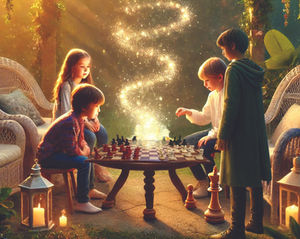Never too late to join Afghan football
- Javier Romano

- Feb 10, 2022
- 3 min read
Updated: Mar 9, 2025

I still remember my many excuses for not joining the Afghan football games in La Zahara: “not this year… not this year,”“too dusty,” “too hot,” “too brutal,” “never liked football,” “busy elsewhere,” “chatting with friends on the terrace,”“oops, missed it again,” and so on.
Yet, in the back of my mind, I couldn't help but observe that something important was happening on the field. Surely, as spectators, we gained partial insights just by being there—we absorbed some of the energy and understanding—but it was nothing like being in the game.
I only truly understood this once I finally decided to jump in and experience it for myself. But by then, I had already lost valuable years of training. Even though I had just begun grasping the basic dynamics of that exercise, the existing teams had already formed deep bonds over time, developing a more subtle understanding of what was really unfolding on the field.
It was an incredible experience—one that words cannot fully capture, manifesting itself on multiple levels. It was a teaching tool in action, one that worked and still works. He who tastes, knows.
“To distinguish real objectives from secondary ones the Sufis have said: ‘The importance of something is in inverse proportion to its attractiveness.’ This is the parallel of the negligence with which people often fail, in the ordinary world, to recognise important events, inventions or discoveries. That this is appreciated in day-to-day matters is perhaps evidenced by the appearance of this statement in a London daily newspaper as ‘The importance of a subject can be judged by the lack of interest in it.”
“Seeker after Truth”. Attraction and Importance. I. Shah
When Quaternity was first introduced, I found myself ignoring it in the same way. I had played chess briefly as a teenager but never pursued it, and so I lost interest. Then, during a gathering, a friend called me over to temporarily replace a player in a game being played after lunch under the big marquee.
I hesitated, insisting that I didn’t know how to play. But my friend reassured me that it didn’t matter—it was only for a few minutes.
That moment felt like a small initiation, and from then on, I never stopped playing and learning.
In Daria Nur, I joined my first tournament. I remember feeling deeply insecure, unsure of which pieces to move. A Brazilian friend leaned over from behind and whispered the magic words: “Just move any piece and see what happens.”
This was a key moment. See what happens—see for yourself. Face your fear and insecurity. Play on. It doesn’t really matter, and yet it does.
"Gold and Undertaking" is the one story that stayed with me from the moment I started learning and playing this game. Whenever I was defeated—which happened most of the time—it encouraged me to keep going, to discuss the game with friends, to analyze their strategies, and to share what I had observed. We helped one another, and, more importantly, we became more familiar with one another—just as with Afghan football.
It was like an electric current passing through us—so evident, so tangible.
Now, I probably feel as the Afghan football players did back then: “Why isn’t everyone using this tool?”
Nothing lasts forever—at least not in this dimension. As Agha once said about the game: “You have to catch the ball and pass it on.”
The many fabricated excuses for not using a tool made available by a teacher remind me of the reactions of some people in The Wandering Baba when they were introduced to unusual forms of teaching.
“The sooner this ignorant and ridiculous dervish quits our neighbourhood, the better.”
“This is disgraceful for a man of faith, a teacher and Hakim.”
Some people approved; others were profoundly dismayed.”
But “...Through the Wandering Baba all these people and these things had been saved.”
I. Shah, Reflections. P. 101-2-3
J. Romano
9. 2. 2022








Comments